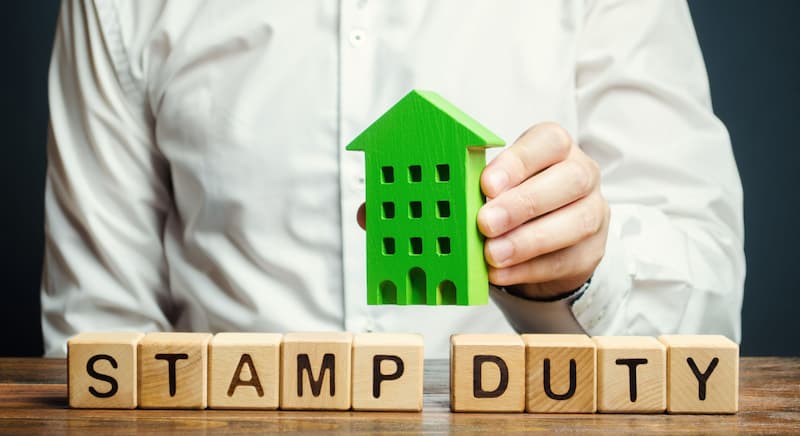Do You Have To Pay Stamp Duty?
Residential and Commercial Properties

Do you have to pay stamp duty?
Stamp duty is a tax imposed by the government which you are usually required to pay when altering documents that list the ownership of a property. It’s one of many steps you are likely to experience when buying a house, alongside other similar tasks such as getting the property surveyed by the bank to confirm its value and receiving information on the history of the house from your estate agent.
When implementing stamp duty, the government recognises a property as being a specific section of land or any type of domestic building - from new builds to ancient cottages and everything in between. While the condition of the property has no impact on the price you are required to pay in stamp duty, the type of property involved will affect what you will need to pay.
Although primarily intended for residential properties such as houses and apartments, stamp duty also applies to non-residential properties such as shops, offices, forests and land used for agriculture. It’s also applicable to mixed-use land, which is where a non-residential and residential property are combined over the same piece of land. The difference between residential and non-residential properties is the percentage paid towards stamp duty. For example, a residential property would be 1 per cent of its value before tax but a non-residential property would be 7.5 per cent of its value before tax.
For anyone looking to buy a house, finding out whether or not they need to pay stamp duty is crucially important. Depending on the pricing of the house, the stamp duty could be expensive, meaning a significant increase in funds needed to buy the property alongside the deposit, solicitor fees, surveying and conveyancing fees, and any payments regarding home insurance.
Who has to pay stamp duty?
In any case of buying a property - residential or non-residential - the person who now owns the land is held accountable for paying stamp duty. The only exception to this is if the property has been transferred to someone as a gift, where every name mentioned in the document for changing over ownership to the person receiving the gift holds an even share of accountability.
Many people wrongly assume that stamp duty only applies to people that are looking to buy a property, when in reality, it’s also applicable to those who are leasing their property. While the person buying a property would typically be accountable for paying stamp duty, the same would be said for the person leasing their property.
As with a property that’s been gifted to a third party, circumstances where more than one person are joint-owners lead to an equal share of accountability over everyone listed as an owner. In the event of the accountable person dying, the administrator of their estate would be left to deal with paying stamp duty using their available assets.
Do first time buyers pay stamp duty?
First-time buyers in Ireland have to pay stamp duty on their first properly regardless of the fee paid for it. As the laws surrounding stamp duty in Ireland are the same for first-time buyers as they are for everyone else, understanding rates of stamp duty and how it works is vital for all potential buyers. It acts as a considerable extra payment which is added to the process of buying a house and is a cost that is often not properly accounted for when a property is first bought.
Stamp duty is set at a rate of 1 per cent up to the first €1 million, with a rate of 2 per cent applicable for residential properties over €1 million. This would mean that a house bought for €120,000 would require a stamp duty payment of €1,200 (1 per cent of €120,000) and a house bought for €12 million would require a payment of €240,000 (2 per cent of €12 million), apart from if it was a non-residential property, as it would be charged at a rate of 7.5 per cent.
When does stamp duty need to be paid?
To avoid interest and penalties, it is important to pay your stamp duty within 30 days, with the Revenue Commissioners stating that it should be paid within 30 days of signing the written property document. Within this 30-day period, you must file a stamp duty return and pay the required fee, which can be done online via the Revenue Online Service (ROS).
After checking that the amount is what you were made aware of during the property buying process, you will need to register to use the ROS, where you must create an ROS Digital Certificate. Your payment can then be made online using the official portal. Alternatively, you can request that your solicitor or personal accountant makes your stamp duty payment through the ROS or you can pay stamp duty outside of ROS via electronic fund transfer or by sending a payment manually to the National Stamp Duty Office.
It would be advisable to make your stamp duty payment during the 30-day period, as failing to do so will eventually lead to extra interest being applied to the fee and additional charges for late payment. However, the Revenue Commissioners will facilitate an additional 14 days before enforcing interest for the late payment and a charge for filing it past the designated time frame.
